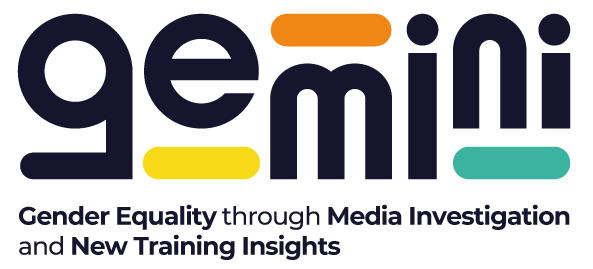Recent Changes to Gender and Sexuality Education at Post-Primary Level in Ireland
By Izzy Fox, 28 May 2024
The GEMINI project is interested in digital tools for gender mainstreaming via popular and engaging serial drama. The Irish researchers, based at Maynooth University, are closely monitoring developments and tools that can facilitate the teaching and learning of subject matter relevant to the GEMINI project, particularly digital media literacy as well as gender and sexuality education at post-primary level. However, while there has been an effort made to diversify teaching content in recent years, the teaching provision granted to both of these topics in Irish secondary/high schools has been found wanting. This point is supported by the three focus groups and twelve teacher interviews conducted in Ireland as part of the GEMINI project, as well as by the results of research requested by a previous Irish Minister for Education and Skills.
Consequently, a 2019 review of Relationships and Sexuality Education (RSE) in Ireland by the National Council for Curriculum and Assessment (NCCA) identified shortcomings in terms of provision and content, at both primary and post-primary levels. As a result, the existing Junior Cycle Social Personal and Health Education (SPHE) short course (taught to 12-15 year olds) was revised and updated in 2023 to include content on gender identities, sexualities and consent, among other topics. The SPHE curriculum website also includes, what one English and SPHE teacher we interviewed described as “really, really good [and] comprehensive” reading materials for teachers, including a toolkit of teaching resources.
While the development of the SPHE curriculum is welcome and overdue, it remains a short course of 100 hours of teaching provision (up from 70 hours previously) across the three years of the Junior Cycle programme. This is still inadequate in terms of the complexity and importance of the topics covered in SPHE, which include not just RSE, but three other strands, namely: “Making Healthy Choices”, “Emotional Wellbeing” and “Understanding Myself and Others”.

Image 1: The four “interconnected strands” of the Junior Cycle SPHE course and the three “cross-cutting elements”, namely, “dialogue”; “reflection & action”; and “awareness”.
Another issue that teachers identified is the fact that the training provided to cover the content and methodologies associated with the new curriculum is only available to those who are currently teaching, or are likely to teach, SPHE. However, particularly in light of the recent backlash in media and public discourse that elements of this course are receiving in Ireland, most notably content related to gender identities, this is training that would benefit all teachers.
For instance, many of the non-SPHE/RSE teachers we interviewed identified the sensitivity of these topics coupled with their self-professed lack of expertise on the subject matter as contributing to their reticence to broach gender and sexuality issues in the classroom, thus inhibiting efforts to ensure gender mainstreaming manifests throughout the Irish secondary school curriculum and not just in subjects that are mandated to teach these topics.
This concern is concrete rather than abstract as almost all teachers interviewed commented on the infiltration into their classrooms of the misogynistic and queerphobic discourse of the manosphere, through comments expressed by their students, particularly the boys. This observation is supported by the fact that the students interviewed as part of the focus groups identified social media, particularly TikTok, as their main source of information on gender and sexuality. This is not to argue that all social media content is problematic but considering that a recent study (2024) has shown that boys are exposed to toxic content within twenty three minutes of social media usage, through algorithmic recommendations, whether or not they have sought it out, this is particularly worrying.
Considering the various limitations and challenges outlined above, teachers agreed that whole staff training and the development of clear policies at national and school level would represent an important and positive step towards the consistent and effective teaching of gender and sexuality across teaching subjects. In addition, one teacher interviewed also suggested the appointment of “an inclusion coordinator” in every school to oversee teacher training on these issues and the implementation of such policies.
It is important, therefore, to acknowledge recent developments in terms of gender and sexuality education at post-primary level in Ireland, while also noting that there remains significant room for improvement. Consequently, the GEMINI partners are conscious that transnational ambitions to realising gender equality through serial drama require localised efforts to enact gender mainstreaming across national contexts and embed these values within each educational system.
Izzy Fox is Postdoctoral Researcher at Maynooth University.


